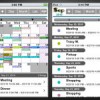Android is one of the most popular LINUX based operating system for tablets and mobile smart phones . It is fast, easy to use, and delivers the best performance even while carrying out multitasking. The numerous apps that comes with Android based phones and tablets have been proved highly beneficial for users. Although Android apps are widely available and can be downloaded easily through the net, but users, if want, can also create them. It’s no rocket science to develop Android apps. This article shares some tips that beginners can follow while trying their hands to develop Android Book apps and other apps on their computer. Here we go:
To develop an Android application , one need to be an expert of Java Programming language. Apart from strong knowledge in Java Programming Language, the user also need to know the right procedures to use Dalvik, a custom virtual machine. In fact, Dalvik is used for testing and demo running of the created application. It should be noted that Dalvik has been designed for embedded use that runs entirely on the top of Linux kernal.
To create Book App for Android in a PC, the developer needs to use exactly the same tools that are required to develop any basic java application. The core libraries of Android will be providing the developer with all the necessary functions required to develop the high quality rich Book App from mobile smartphones and tablets. The Android Library also provides the developer with several development tools like debugging as well running & testing of applications in a much easier way.
Having strong knowledge about SQL is important. This will allow the developer to put all the data models into a proper database. It is important to know that Android has a very nice persistence system. This can be utilized to make the applications more robust in case there is a sudden failure or shutdown. It will help in resuming as well suspending the apps in a more efficient manner. Using Android’s SQLite storage system can be highly beneficial as it is fully integrated with Android’s user interface classes. Database classes in Android framework helps in managing and caching the entire data model in a more efficient manner while taking the necessary initiative to transform these models into objects and storing them int he memory.
Automated testing procedure should be implemented to test the applications. It helps in generating a wider stream of events, reports any malfunctioning of applications like crashes, simulates random input, and notifies lack of response for any apps. It is better to use JUnit and Instrumentation Framework to carry out the testing.
When developing Android Book Apps . it’s always better to divide the app developing process into smaller frameworks. It will put less pressure on the overall application development process. Remember, it’s easier to develop and run smaller applications. They also use minimal resources.
Finally, having a good knowledge of XML can be highly beneficial. It is best visual editing tool available for developing Android Apps . XML is easy to use and never encouranges any complications during the functioning process. It’s easy to learn also. Also, it is very easier to fix any sort of problems that occurs in XML based Android apps.
Author Bio: Diana is a writer blogger. She loves writing, travelling and reading books. She contributes to SEO Morpheus



